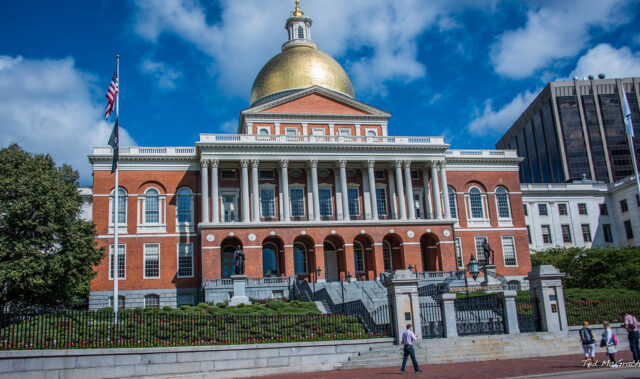In the third online gambling bill of the year, Massachusetts is considering prohibiting dual-currency sweepstakes games.
Representative David K. Muradian introduced the bill, H4431, which aims to legalize online gambling games for licensed operators and, at the same time, prohibit dual-currency sweepstakes games. However, while Massachusetts lawmakers will need to evaluate the bill, its chances for passing are thought to be fairly low.
The bill is currently with the Committee on Economic Development and Emerging Technologies. If passed, it would allow the three physical casinos in Massachusetts – Encore Boston Harbor, MGM Springfield, and Plainridge Park Casino – to partner with up to three online gambling skins, once approved for licenses.
After that, they will be able to offer online casino games like poker, blackjack, craps, roulette, slots, and more, so long as they are “substantially equivalent to those typically offered at a casino, and any other game approved by the commission.”
At the same time, Muradian’s bill would also place a 15% tax on the gross online gambling revenue, on top of a $100,000 license fee and annual renewal fees set $100,000 charged to operators. Operators of online betting skins will need to pay a non-refundable license and application fee of $50,000.
A bill to ban sweepstakes
As well as those stipulations, the bill would also declare it unlawful to operate, conduct, or promote online sweepstakes games, effectively banning any activities where prizes are awarded based on chance, following in the footsteps of New Jersey, California, and Montana.
Breaking that prohibition would result in a fine between $10,000 and $100,000, as well as potentially losing gaming licenses for operators. Repeat offences would also be subject to higher fines and potential prison time of up to two years.
However, there are criticisms of the bill that suggest it won’t pass as easily as Muradian might hope. A spokesperson for the Social and Promotional Games Association said that a blanket ban of sweepstakes games displays a “poor understanding of the sweepstakes model.”
“Lawmakers moving to ban sweepstakes while introducing iGaming demonstrate a poor understanding of the sweepstakes model and undue deference to iGaming lobbyists,” said the spokesperson, as reported by Sports Betting Dime. “Instead of a blanket ban, Massachusetts could embrace oversight and regulation, securing millions in potential tax revenues, instead of deciding for its residents what games they can – and can’t – play on their mobile phones.”
Featured image: Flickr, licensed under CC BY-NC-SA 2.0







